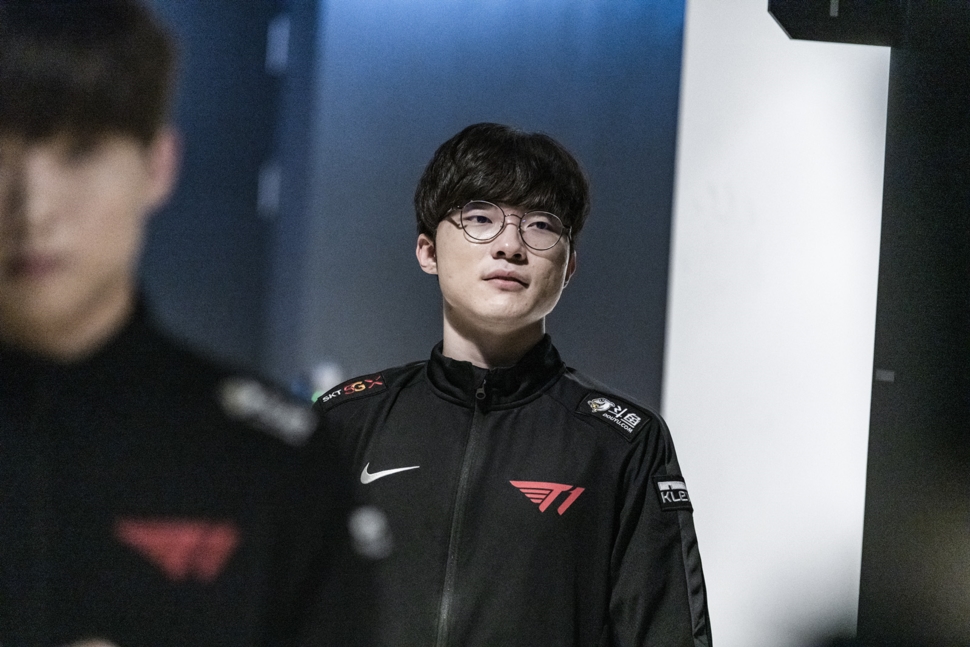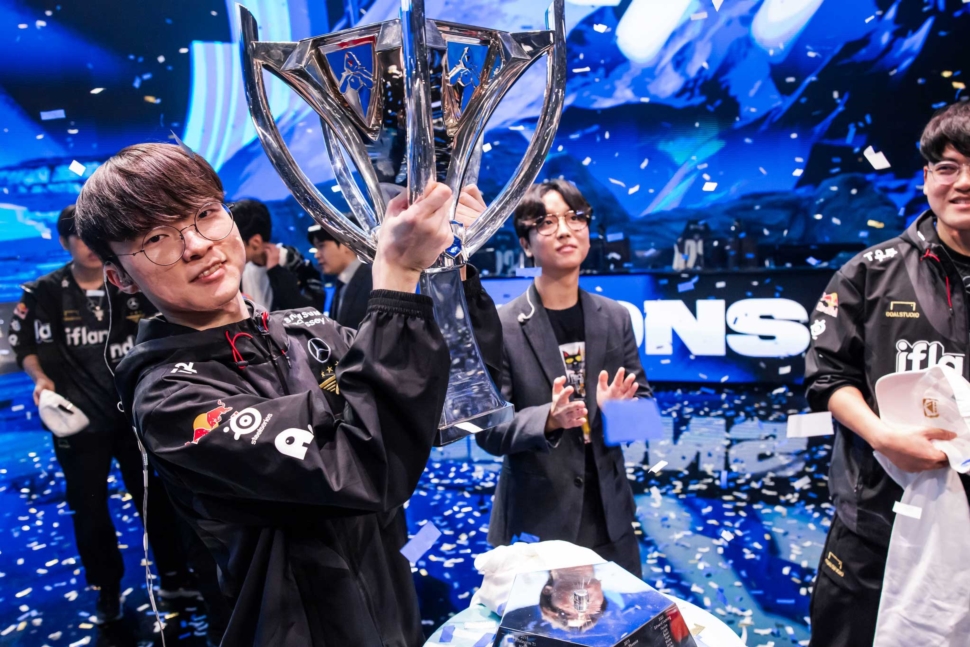[Dec] Korean e-sports athlete Faker's rise to stardom
Date Dec 19, 2023
 Esports League of Legends Korean national team player Lee “Faker” Sang-hyeok (Photo by SK Telecom)
Esports League of Legends Korean national team player Lee “Faker” Sang-hyeok (Photo by SK Telecom)
He has been dubbed the Michael Jordan, Lionel Messi or even the “god” of League of Legends (LoL), the most popular PC game ever, featuring over eight million active daily players across the globe. He is so popular that even non-gamers know his name in Korea.
Meet Lee Sang-hyeok, the Korean e-sports athlete better known by his player name “Faker.” Lee is the most iconic professional player in the history of this unconventional competition that is growing into a mainstream sport.
Born in Seoul, the 27-year-old debuted in professional gaming at the age of 16 in 2013. He leads the Seoul-based SK T1 team, the Korean powerhouse with which he has spent his entire esports career spanning over a decade.
While playing with the team, Lee has attained unrivaled records with national and international titles – three world championships, two mid-season invitationals, 10 national titles – and picked up a concordant nickname, “The Unkillable Demon King.”
The gamer receives a rock star-like reception when he goes out in public or appears on local media, and at stadium events, fans and esports viewers chant his name in a thundering roar. He is now the highest-paid gamer in the country, earning around 10 billion won (US$7.6 million) a year, and stars in television advertisements with Tottenham Hotspur striker Son Heung-min. His cultural influence is often compared to that of the K-pop giant BTS.
 Gamer Lee Sang-hyeok, left, better known by his online ID Faker, raises the LoL championship trophy after his team T1 defeated China’s Weibo Gaming during the final of the League of Legends World Championship at the Gocheok Sky Dome in Seoul, November 19. With the win, T1 clinched their fourth championship victory. (Photo by Riot Games Esports)
Gamer Lee Sang-hyeok, left, better known by his online ID Faker, raises the LoL championship trophy after his team T1 defeated China’s Weibo Gaming during the final of the League of Legends World Championship at the Gocheok Sky Dome in Seoul, November 19. With the win, T1 clinched their fourth championship victory. (Photo by Riot Games Esports)
Despite his rise to stardom, Lee chooses to remain humble.
As a professional gamer, he said that he values “modesty and ceaseless effort to improve” over anything during a press conference after his team swept to victory against China’s Weibo Gaming in the annual world championship held in Seoul last month, adding his team was “lucky enough” to make the score 3-0.
His humble demeanor and sportsmanship often come out during interviews and public appearances, spreading a positive influence on his fans. Korean T1 fans led an online campaign recently in which they posted good deeds they had done in the name of rooting for Lee’s team such as picking up garbage from the streets and donating blood.
In the controversy over whether esports should count as a sport, Lee believes it certainly deserves the recognition.
After his team won the gold medal at the Asian Games in Hangzhou, Lee said, “The most important definition of a sport should be whether the players’ performance, dedication and competition inspire others.”
Esports was selected as an official sport for the first time at the Hangzhou Asian Games this year, and Korea ranked second overall in multiple games after China by clinching four medals.
According to leading game data platform Newzoo’s 2022 report, the global esports market is worth US$1.38 billion in revenue and has an audience of around 532 million, comprising 261 million enthusiasts and 270 million occasional viewers.
The market, which has seen a healthy annual growth rate of 13.4 percent since 2020, will generate nearly US$1.86 billion in revenue globally with an audience surpassing 640 million by 2025, the report said.
Korea’s gaming industry is one of the largest in the world. The projected revenue in the domestic esports market is estimated to reach US$274 million this year with an annual growth rate of 7.2 percent, resulting in a projected market value of US$388.8 million by 2028, according to Statista.

The Ministry of Culture, Sports and Tourism's "Korea Here & Now" work can be used under the condition of "Public Nuri Type 1 (Source Indication)."




